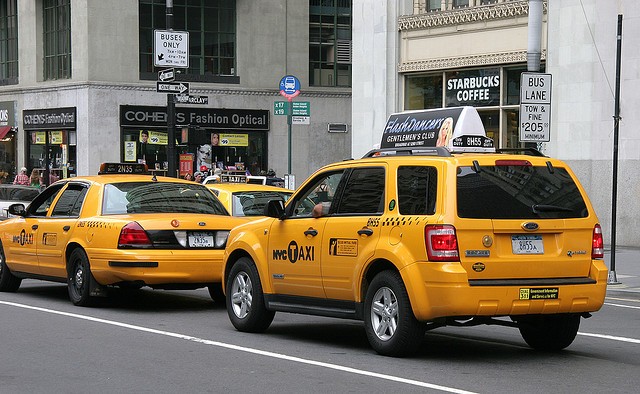
UberTAXI Goes UberRAND
A brouhaha has developed over the shutdown of UberTAXI — a service run by Uber, a startup that connects people to taxi cabs and liveries.
Founder Travis Kalanick claims that New York City's TLC (Taxi and Limousine Commission) "put up obstacles and roadblocks in order to squash the effort around e-hail." (E-hail, for the uninitiated, is an Uber service that lets iPhone users order cabs.)
Uber’s services are fresh, Internet-powered solutions to age-old brick-and-mortar problems, and the story of how Uber is trying to push them through is fascinating. But an obvious question is … why are we at Free Press writing about a taxi service?
It boils down to this: Kalanick's complaints are about more than a regulatory run-in with the TLC. They touch a nerve for anyone interested in the notion of "disruption" — the idea that bold innovations in technology can turn dinosaur industries upside down. Or, as writer Paul Carr pejoratively put it last week, "the faddish Silicon Valley concept which essentially boils down to 'let us do whatever we want, otherwise we’ll bully you on the Internet until you do.'"
Carr is referring to Kalanick's well-publicized rant blaming bureaucratic holdups for UberTAXI's demise. But in contrast to Boston and Washington, D.C., which reportedly made it difficult for Uber to operate until the company rallied Internet users to its side, New York City was open to the idea of an online taxi-hailing service.
According to a tweet from the mayor’s office, it just needed time to get through some regulatory hurdles. Kalanick had little patience, writing that he and his colleagues will "bite our tongues and keep our frustration here to ourselves … such is life as a transportation technology innovator, boldly going where no man has gone before."
Unlike startups like Square, which recently ended a pilot program using its credit-card readers in New York without any drama, Kalanick chose to be oppositional toward New York City's government, torpedoing the effort rather than work with a few bureaucrats. But laws and regulations exist for a reason, as Carr notes. "Laws don’t exist merely to frustrate the business ambitions of coastal hipsters: They also exist to protect the more vulnerable members of society." But Kalanick didn’t want any part of it.
As Carr notes there's something… ideological about Kalanick's fit. There's an assumption that any government involvement in tech innovation is bad, and that "the free market is the only protection the public needs."
I respectfully disagree. And I’m not alone. Last week, the Technology Councils of North America (TECNA) — hardly a group of pro-government advocates — released a study showing that "66 percent of top technology and business executives prefer that government have some role in promoting innovation and growth in the tech sector."
"Businesses want our government to take a modest but constructive role,” the study’s authors write, “such as opening the door to new sources of capital, so that private tech firms can innovate and succeed."
Wait, I thought government was that thing that overregulates industries — making it hard for tech innovators to "disrupt" them?
The truth is, government can be helpful or hurtful to innovators. But as TECNA suggests, it's folly to think you can simply innovate your way around all existing restrictions and regulations. Sometimes you just have to work with city hall or with Congress. And working with government can lead to significant rewards, whether that means investment in business, or, as in the Uber case, eventually relaxing regulations to help startups get a foothold.
However, Kalanick seems a bit too blinded by his love of Ayn Rand's philosophy to realize that by working with and not against government, he might have been able to get what he wanted — and more.
Original photo by Flickr user Dawn Huczek